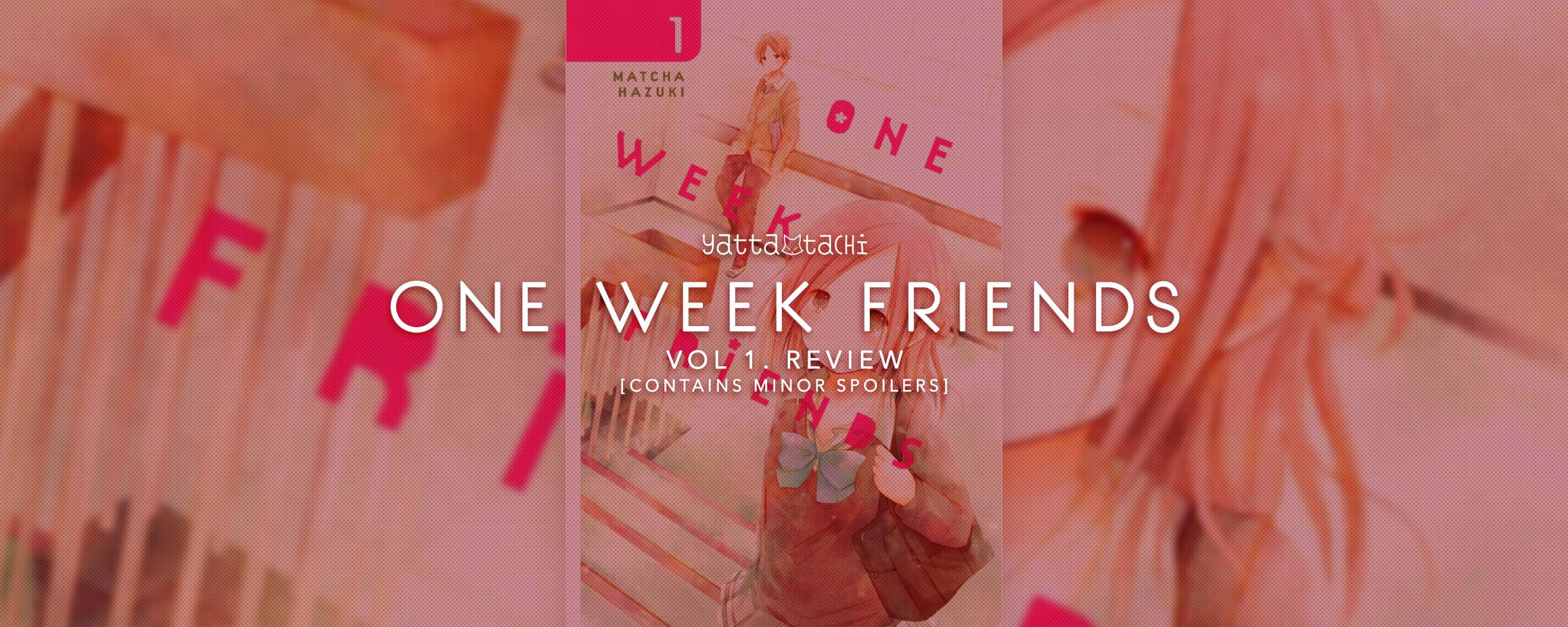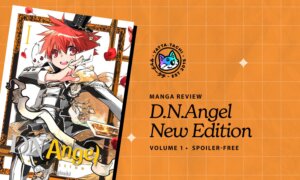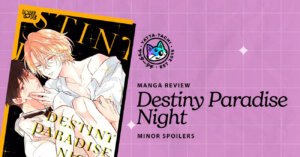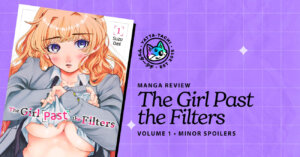Romance stories in manga come in different forms. Sometimes it’s about a girl falling in love with the first boy that treats her kindly. Sometimes it’s about a boy caught between two love interests with vastly different personalities. Yet while it’s exciting to read romantic manga full of these engaging interactions between a soon-to-be couple, stories where the characters grow closer and naturally develop feelings for each other are a little more impactful. This is the kind of story you can expect in Matcha Hazuki’s One Week Friends.
[Article contains slight spoilers on the first volume. If you don’t wish to be spoiled at all, skip to the Verdict section!]
One Week Friends follows Yuuki Hase as he tries to befriend Kaori Fujimiya, his cold, yet mysterious classmate.
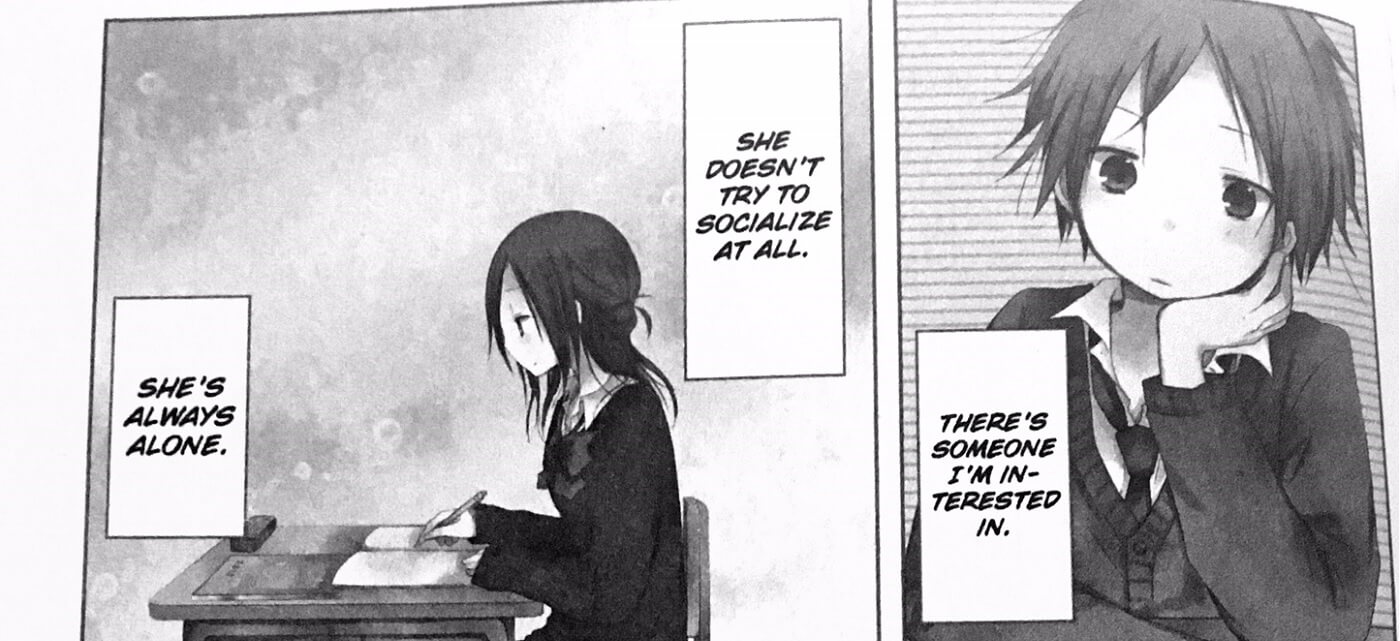
One day, Yuuki gets the opportunity to spend time with Kaori and asks her to be his friend. At first, she refuses, but then he proposes that they spend time together without the title of “friends.” Swayed by his earnestness, Kaori agrees and the two spend time together under the guise that they aren’t friends. However, when Friday comes, Kaori’s attitude changes and she tells him to stop talking to her.
Confused by her attitude, Yuuki refuses and Kaori is forced to reveal her dark secret: every week she loses her good memories of whoever she’s close to. Now aware of her secret, Kaori expects Yuuki to abandon her like all the rest, but surprisingly he doesn’t. Instead, he declares that he’ll ask her to be his friend every week until they figure out how to solve her memory problem. Thus begins their relationship, as Yuuki strives to help Kaori and Kaori learns what it’s like to not have to be alone.
The Good
One Week Friends has an interesting concept and it’s executed well in a rather unexpected way through the art style. Though the cover of the manga has a cute, sentimental quality, the manga switches between this style and a cute, comedic 4-koma style ( a short, four-panel style). This creates a unique journey for the reader. The 4-koma sections bring humor and lightness to the story and help us learn more about the characters, whereas the normal style captures and strengthens the emotional parts of the story.
For example, a lot of the interactions between the three main characters Yuuki, Kaori, and Yuuki’s friend Shougo Kiryuu use the 4-koma style. The 4-koma style makes these interactions quick and fun. Sometimes revealing something new about the character, sometimes just throwing in a great joke. However, when the manga needs to become more serious, it switches to a normal style. For example, when Yuuki asks Kaori to be his friend, the scene is represented in 4-koma.
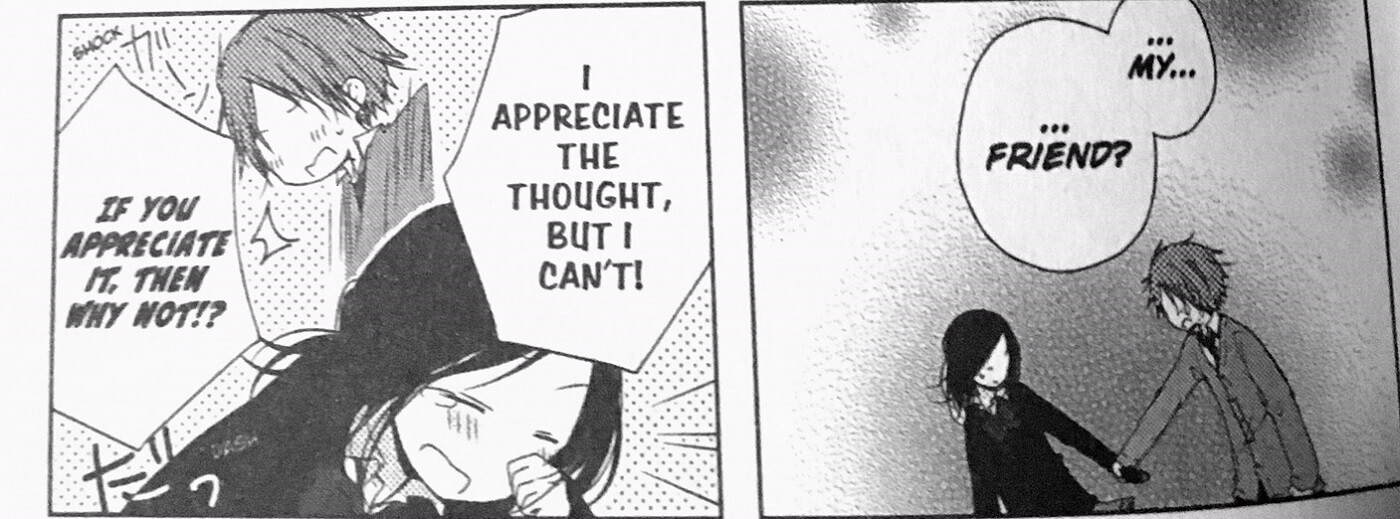
Here the 4-koma style fits the humor of Kaori and Yuuki’s over-the-top reactions. However, when Kaori sincerely turns down Yuuki’s offer of friendship, the manga switches back to a normal style.
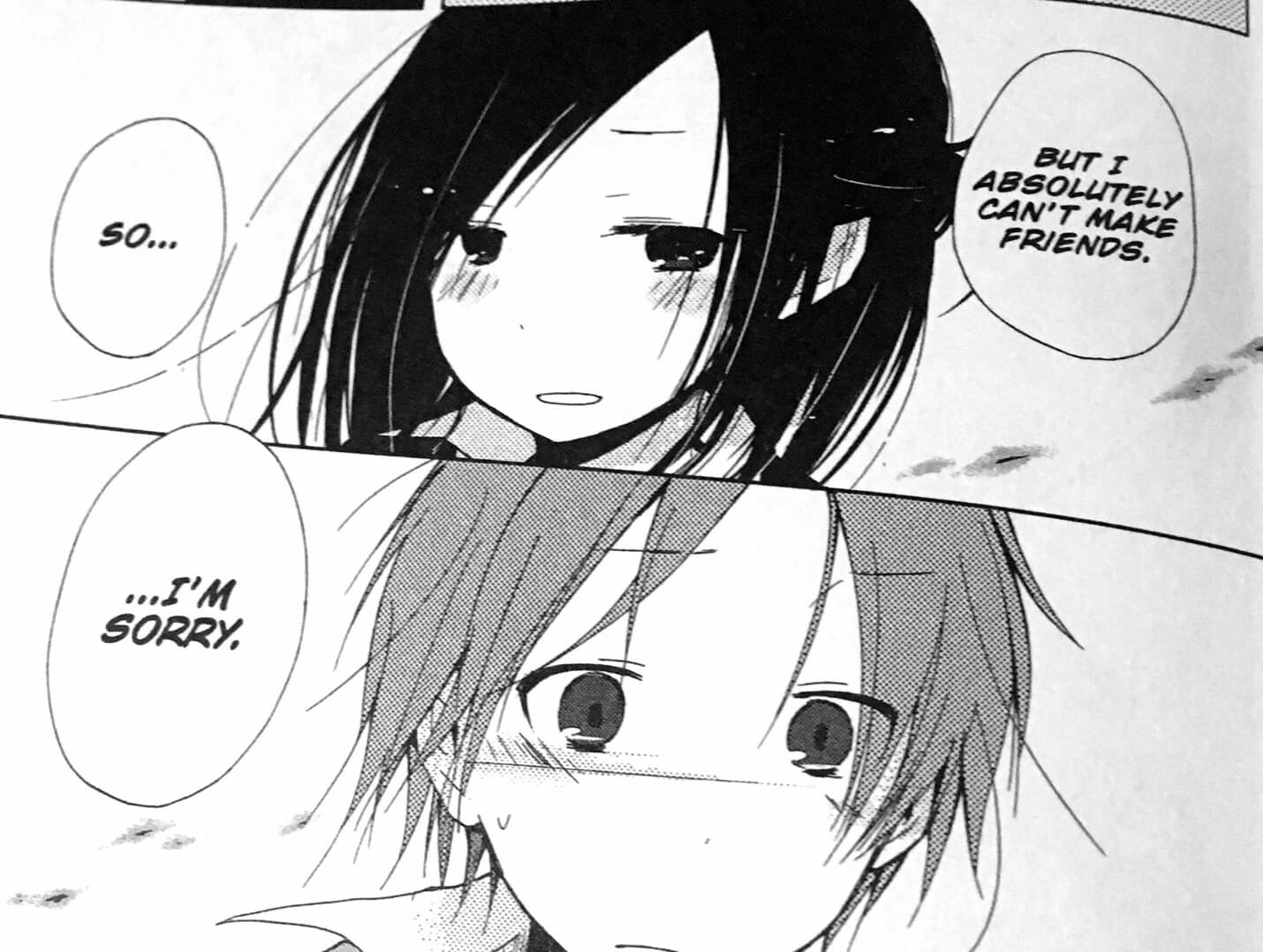
Here the normal style of the scene uses close-ups to capture Kaori’s regret and Yuuki’s disappointment. This transition works well because it fits the tone of the manga and captures the seriousness of Kaori’s condition. This allows the manga to have an emotional impact without being too depressing.
Another great aspect of One Week Friends is its characters. Each main character has a distinct look and a unique personality. Yuuki has a young face and wide eyes that suit his boyish charm and his good nature. Kaori has long light brown hair and wide eyes that contrast with her cold persona and strongly bring out her cute side when she’s acting like her real self. And Shougo has blond hair and narrowed eyes that suit his slacker attitude and his blunt way of speaking. All three of these characters have great moments and interact well with each other, but the standout character in this volume is Kaori.
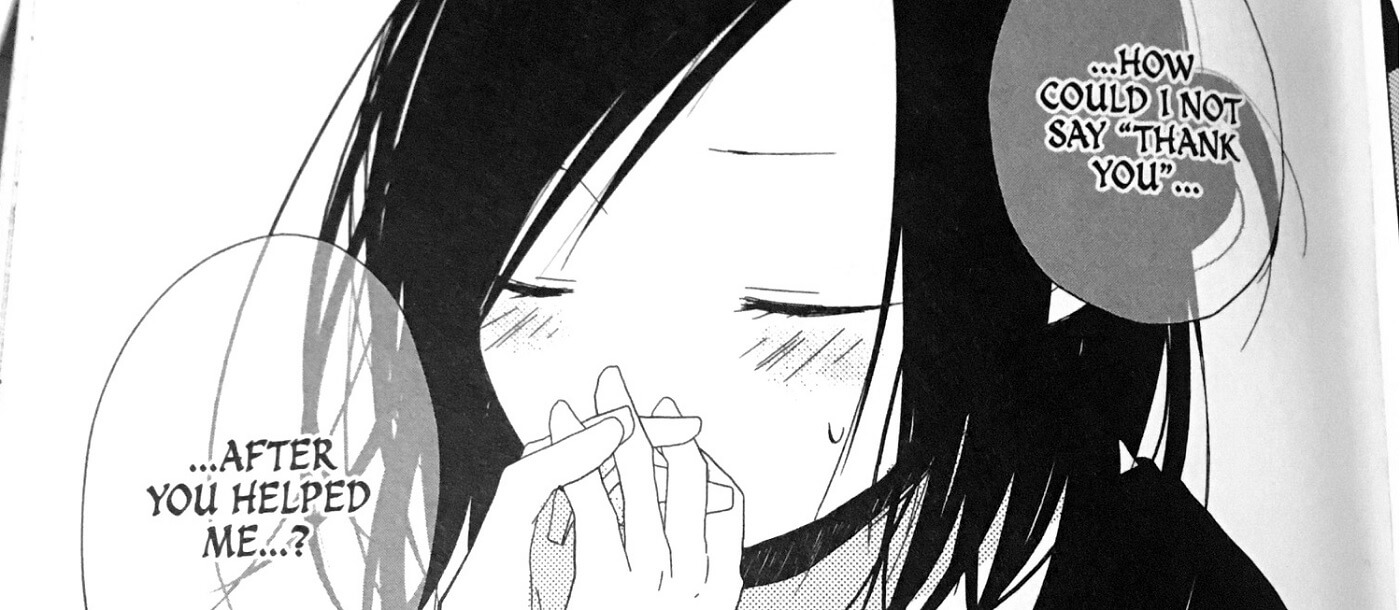
Among the characters, Kaori is the one we learn about the most and see multiple sides to. From her introduction, I expected a cold awkward girl, but Kaori turned out to be a lonely girl with a surprisingly cheerful side. What I really like about this part of her is that it reveals more about her character. Kaori is a sweet, outgoing girl, but she’s had to hide her real personality to keep others from getting close to her. This action shows her great mental fortitude and how much she cares about others. Even though forgetting her friends causes her pain, she also doesn’t want others to experience pain because of her condition.
Kaori also shows growth by accepting Yuuki’s request to be her friend, demonstrating that she doesn’t want to remain isolated and wants to find a better way to handle her situation. Towards the end of the volume, Kaori is still keeping up her façade in class, but her interactions with Yuuki are starting to cause her real personality to peek through. It’ll be exciting to find out how Kaori will grow further from her interactions with Yuuki and how her dynamic with her classmates will change.
The Questionable
Kaori stands out, but Yuuki seems to blend into the background a little too much. He’s a likeable character and we learn more about him through his interactions with Kaori and Shougo, but so far it feels like were viewing the story through him rather than watching his involvement in the story. This can make him feel replaceable and shift our focus to the other characters more, which is a bit problematic since he’s the protagonist. For example, in the first volume, one of the biggest problems Kaori has is being an outcast among the other girls. Because of her cold persona, the other girls talk badly about her. Towards the end of the volume, after getting close to Yuuki and Shougo, Kaori freezes when she overhears the girls making fun of her change in attitude. However, instead of Yuuki showing up to help her, Shougo does.
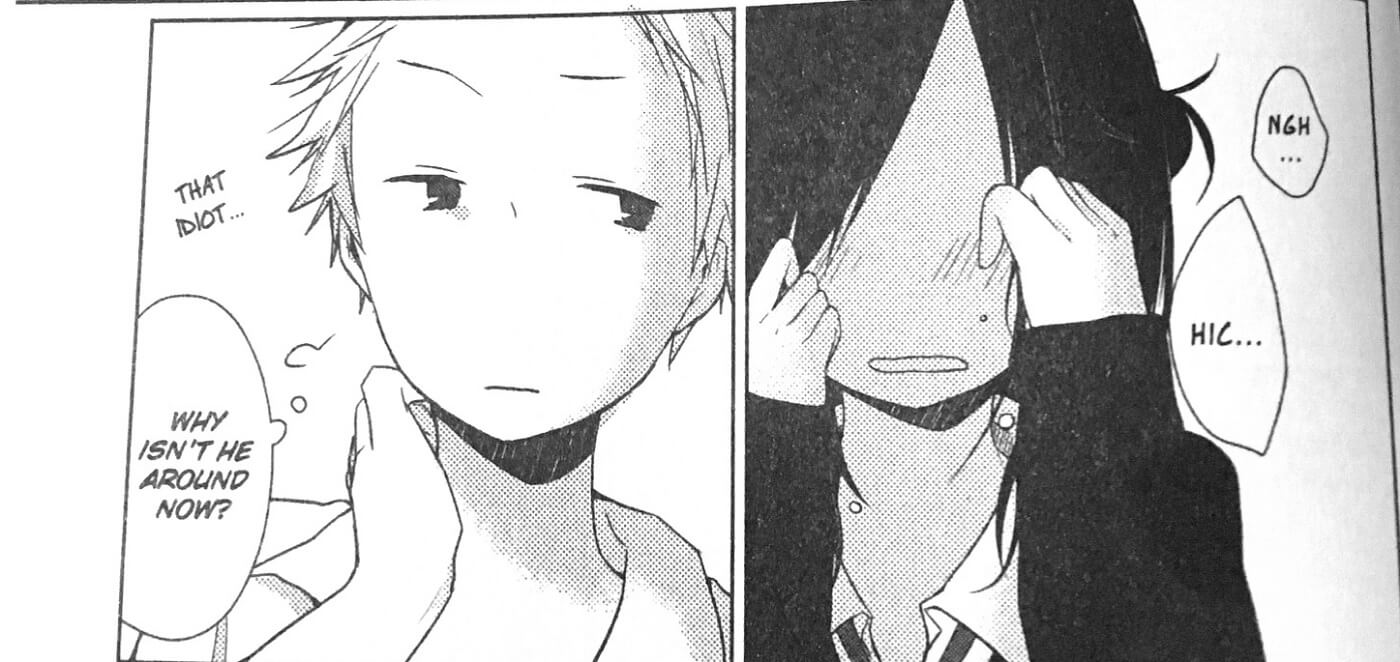
While this scene did give Shougo a good character moment to show that he had a kind side underneath his sharp way of speaking, it felt a bit odd that Yuuki wasn’t the one to help her. Perhaps the creator chose to have Shougo save her to set up a future love triangle, but it’d still be nice to see Yuuki take a more active role. Fortunately, this is only the first volume, so there’s a chance that Yuuki will stand out more as the story progresses.
The Very Good
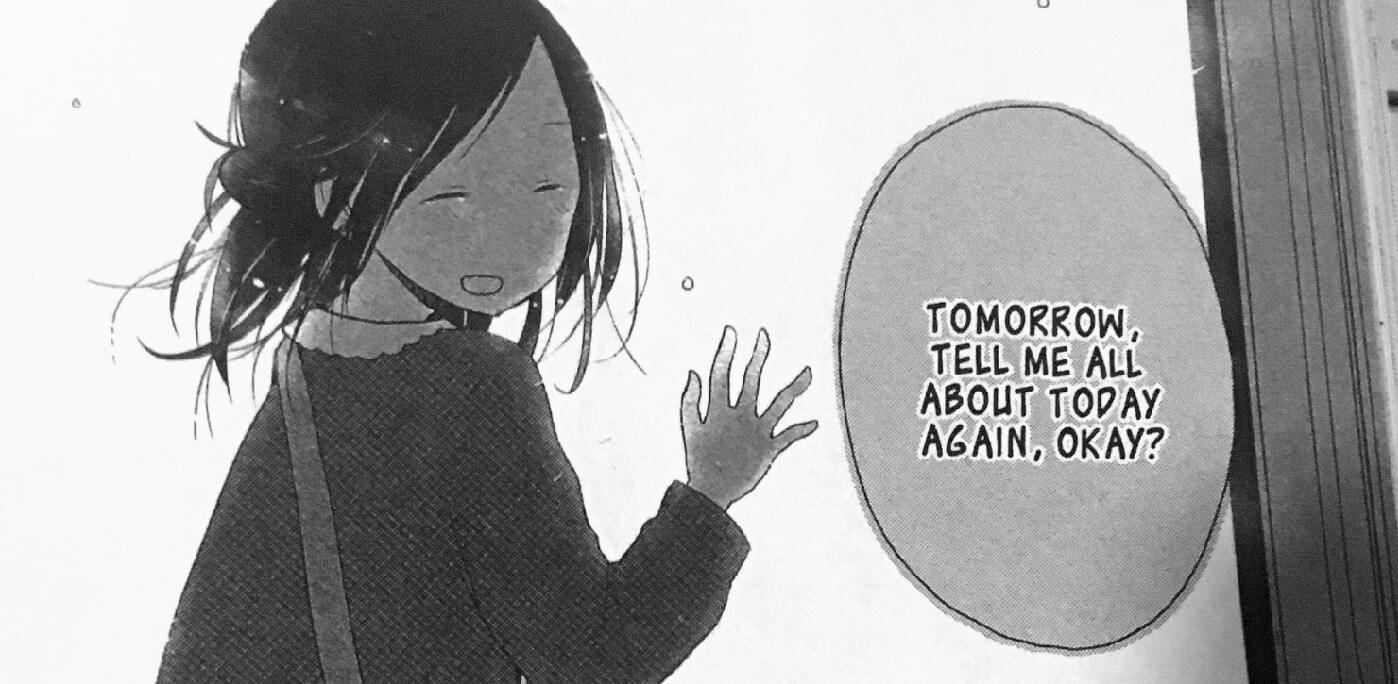
Overall, the one aspect that really makes One Week Friends a compelling manga is the excellent pace. The story flows well from chapter to chapter and there’s never a boring moment. Each week where Kaori forgets Yuuki builds upon the last and adds something new. Instead of rehashing what we’ve seen in a previous week, Hazuki finds a way to jump into new interactions between the characters and show their building relationships. This closeness makes Kaori’s memory loss more painful, but her progress more impactful. Adding in Shougo to their group also adds to their dynamic, creating new moments of humor and character development. The pace makes the first volume a quick, fun read and leaves you with a lot to look forward to in the next volume.
The Verdict
One Week Friends was a welcome surprise for a cute romance manga. I went in expecting a sentimental story with cute art and found a gem of well-blended humor and seriousness that left me wanting more. The sneak peek at the end of the volume hints at the second volume taking a dramatic turn and I’m excited to see how the story will play out. One Week Friends Vol. 1 is a great start for the series and I highly recommend it.
Thanks to Yen Press, you can order One Week Friends Volume 1 on Amazon!

Featured Sponsor - JAST
The sweetest romance and the darkest corruption, the biggest titles and the indie darlings; for visual novels and eroge, there's nowhere better.
Big thank you to our supporters
From their continous support, we are able to pay our team for their time and hard work on the site.
We have a Thank-You page dedicated to those who help us continue the work that we’ve been doing.
See our thank you page